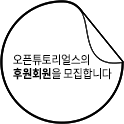(1) Since reading of any sort is an activity, all reading must to some degree be active.
Since
reading of any sort
is an activity,
all reading
must (to some degree) be active.
문법
* 부사절을 이끄는 종속 접속사 since
해석
어떤 종류의 읽기도 하나의 활동이기 때문에 모든 독서는 어느정도 능동적으로 되어야만 한다.
(2) Completely passive reading is impossible; we cannot read with our eyes immobilized and our minds asleep.
Completely
passive reading
is impossible;
we cannot read
with our eyes immobilized
and our minds asleep.
어휘
* immobilize : 고정시키다
해석
완전히 수동적인 읽기는 불가능하다. ;
우리는 우리의 눈을 고정시키거나 졸린 상태로 읽을 수 없다.
(3) Hence when we contrast active with passive reading, our purpose is, first, to call attention to the fact that reading can be more or less active, and second, to point out that the more active the reading the better.
Hence
when we contrast active (reading) with passive reading,
our purpose is,
first, to call attention to the fact
that reading can be more or less active,
and second, to point out that the more active the reading the better.
어휘
* hence : 이런 이유로
해석
이런 이유로 우리가 능동적인 읽기와 수동적인 읽기를 대조할 때,
우리의 목적은
첫번째(목적은) 독서는(항상 능동적이지만) 좀 더 능동적이거나 좀 덜 능동적일 수 있다는 사실을 환기 시키는것이고
두번째(목적은) 더 능동적으로 읽을수록 좋다는 점이다.
(4) One reader is better than another in proportion as he is capable of a greater range of activity in reading and exerts more effort.
One reader is better than another in proportion
as he is capable of a greater range of activity in reading
and exerts more effort.
어휘
* proportion : 부분
* exert : 노력하다
해석
더욱 다양한 종류의 읽기를 할 수 있고, 더 많은 노력을 하는 부분에서 어떤 독자는 다른 독자보다 더 낫다.
(5) He is better if he demands more of himself and of the text before him.
He is better
if he demands more
of himself and
of the text before him.
해석
독자는 자신과 그 앞에 놓인 글에서 더 많은것을 요구할때 더나은 독자이다.
--> 즉 그 독자는 자신으로부터 더욱 많이 이끌어낼 때, 그리고 그의 눈앞에 놓인 글에서 더욱 많이 이끌어낼 때 더욱 나은 독자라고 할 수 있다.



